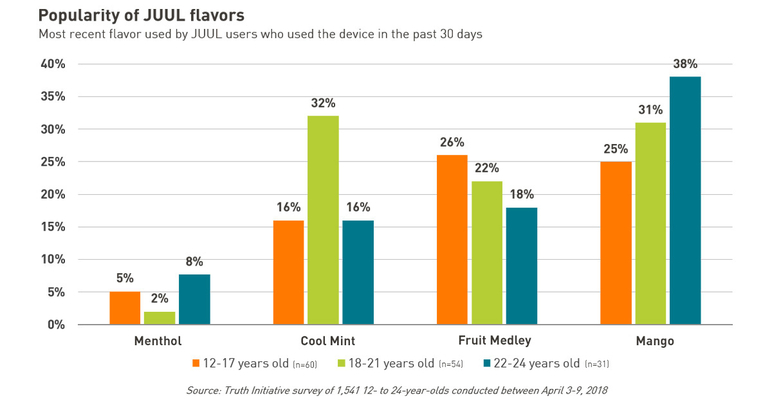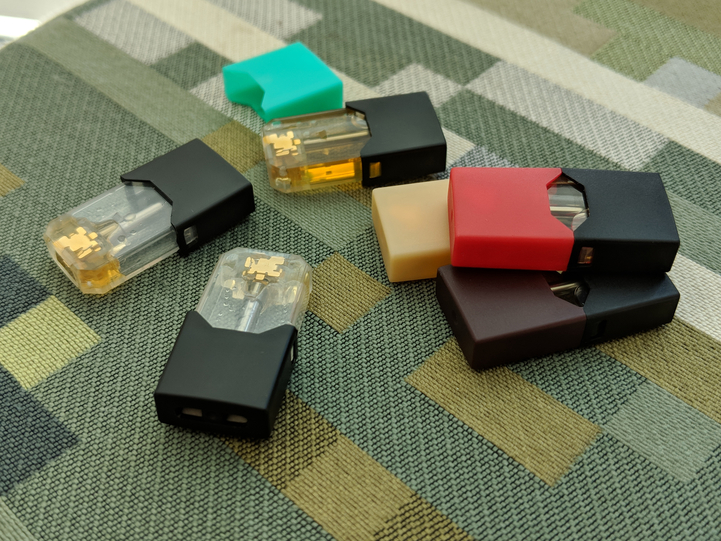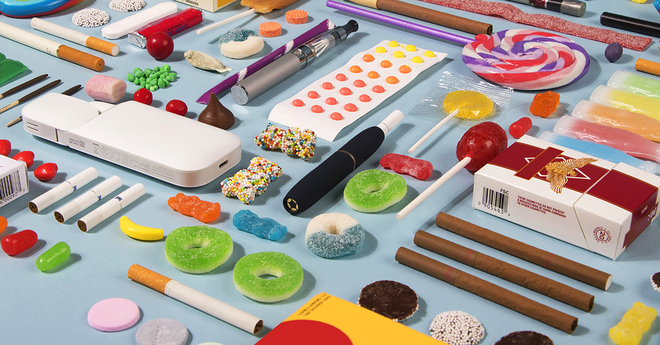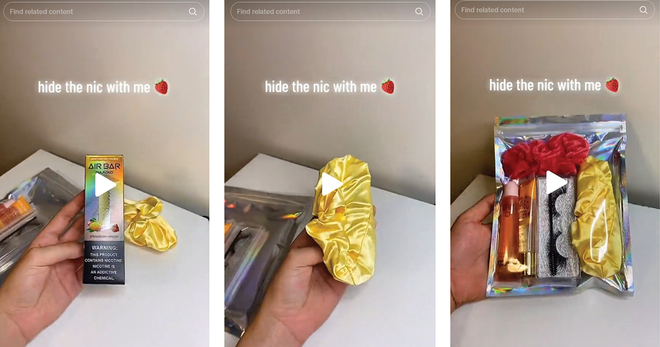JUUL fails to remove all of youth’s favorite flavors from stores
While the maker of JUUL is halting in-store sales of some sweet and fruity flavors in response to backlash over its leading role in the youth e-cigarette epidemic, the vaping giant will continue selling one of the flavors that is most popular with young people: mint.
Just before the Food and Drug Administration announced proposed sales restrictions on flavored e-cigarettes, JUUL Labs, which states that its mission is to help adult smokers quit cigarettes, announced that it will stop stocking mango, fruit, creme and cucumber flavors in retail stores, but will keep the mint, menthol and tobacco flavors because they “mirror what is currently available for combustible cigarettes.” The mint, menthol and tobacco flavors are also exempt in the FDA’s plan, which proposes restricting all other flavored e-cigarette sales to adult-only stores and online retailers with “heightened practices for age verification.”
The mint flavor’s taste, however, does not mirror combustible cigarettes the same way the menthol and tobacco flavors do, and survey data show that mint is one of the most popular flavors with teens and young people, many of whom were never smokers.
A favorite flavor
A Truth Initiative® survey of more than 1,000 people between 12 and 17 years old and more than 500 people between 18 and 24 years old found that mint is a top flavor among young JUUL users who had used JUUL in the past 30 days. Among the youngest users, 12- to 17-year-olds, 16 percent used the mint flavor the last time they used a JUUL, behind only fruit (26 percent) and mango (25 percent). For those between 18 and 21 years old, mint was the most popular flavor, with nearly a third — 32 percent — using mint the last time they vaped, followed by mango (31 percent) and fruit (22 percent). Mint (16 percent), fruit (18 percent) and mango (38 percent) were also the most popular flavors among 22- to 24-year-olds.

While JUUL claims that the mint flavor mirrors combustible cigarettes, the company’s flavor guide describes mint as less traditional than the menthol and tobacco flavors “Virginia Tobacco” and “Classic Tobacco.” Whereas the menthol-flavored JUUL pods are described as having a “traditional menthol flavor with a brisk finish,” and the tobacco flavors taste “familiar” and “unmistakable,” mint is described as “crisp peppermint with a soothing aftertaste.”
Users also describe mint as less reminiscent of combustible cigarettes. Commenters on the social network reddit described the mint flavor as lighter, sweeter and less similar to menthol cigarettes, compared with the menthol flavor.
The survey data, based on a national sample and collected in April 2018, when the mint and fruit flavors were called “Cool Mint” and “Fruit Medley,” show that mint is much more popular with young people than the menthol and tobacco flavors. Menthol and tobacco are among young JUUL users’ least favorite, with only 5 percent or less of those younger than 21 selecting one of those flavors the last time they used a JUUL.
JUUL will continue to make all flavors available for purchase on its website, where the company says it is “adding additional age-verification measures.” The company added that it may continue retail sales for all flavors if the retail store meets age verification standards.

JUUL and the youth e-cigarette epidemic
Use of e-cigarettes, now the most popular tobacco product among teens, has jumped 78 percent among high school students compared with 2017, with 20.8 percent (more than 3 million) of high schoolers now using e-cigarettes, according to new FDA data. The data also show that more than half of those high schoolers — 51.2 percent — use menthol- or mint-flavored e-cigarettes.
As youth e-cigarette use has increased, JUUL’s dominance of the e-cigarette market has multiplied. In just over a year, JUUL tripled its share of the market from 24 to 75 percent. Additionally, Truth Initiative research published in Tobacco Control found that 15- to 17-year-olds have 16 times greater odds of using JUUL compared with 25- to 34-year-olds.
Research has demonstrated that flavored tobacco products play an important role in youth vaping. Almost a third of the middle and high school students who used e-cigarettes in 2016 said the availability of flavors is a main reason they used the products, according to an report from the Centers for Disease Control and Prevention and the FDA. A study that included both middle and high school students found that 43 percent of youth who ever used e-cigarettes tried them because of appealing flavors.
Flavors also contribute to many youth e-cigarette users incorrectly believing they aren’t consuming nicotine when they vape. The majority of youth e-cigarette users think they vaped only flavoring, not nicotine, the last time they used a product, according to an annual national survey of more than 40,000 students from the University of Michigan 2016 Monitoring the Future study, despite the fact that 99 percent of e-cigarettes sold in most brick-and-mortar stores contain nicotine. Nearly two-thirds — 63 percent — of JUUL users between 15 and 24 years old did not know that the product always contains nicotine, a Truth Initiative study published in Tobacco Control found.
Nicotine is harmful to developing brains: younger users are more likely to become addicted, have more difficulty quitting and are at higher risk for addiction to other substances in the future. Young adults who use e-cigarettes are more than four times as likely to begin smoking cigarettes within 18 months compared with their peers who do not vape. According to the JUUL website, the device delivers nicotine up to 2.7 times faster than other e-cigarettes, increasing the potential for addiction.
To reverse the epidemic of youth e-cigarette use, Truth Initiative is calling on the FDA to stop the sale of all flavored e-cigarette products that have not been subject to public health review by the FDA as the law requires, and prohibit online sales of all e-cigarettes. Truth Initiative has also long supported removing menthol cigarettes from the market because they are starter products for combustible use, create a stronger dependence on cigarettes and make it harder to quit.



